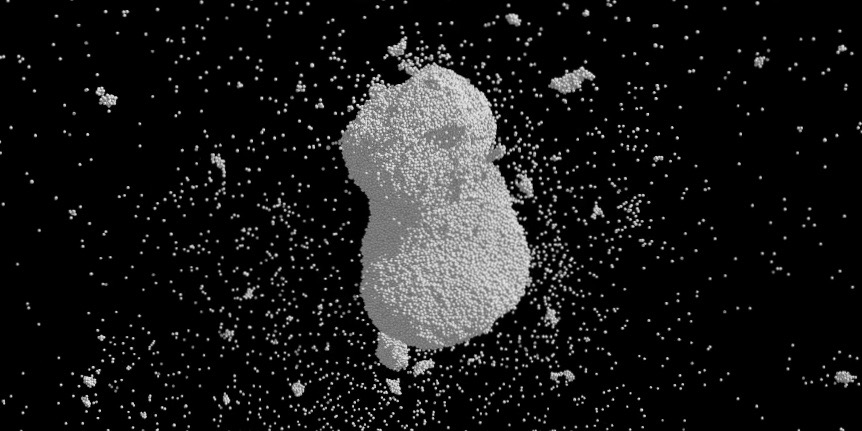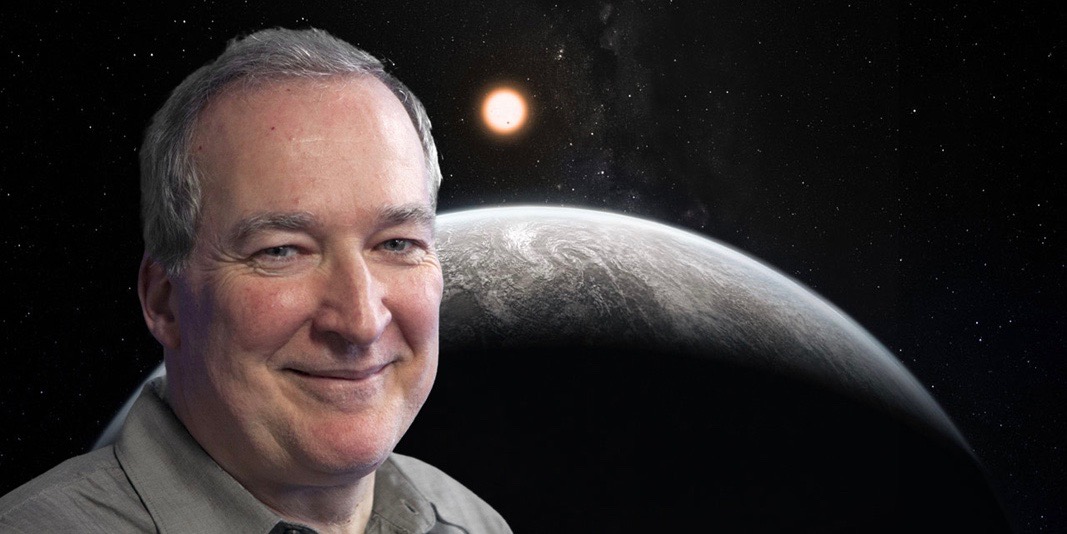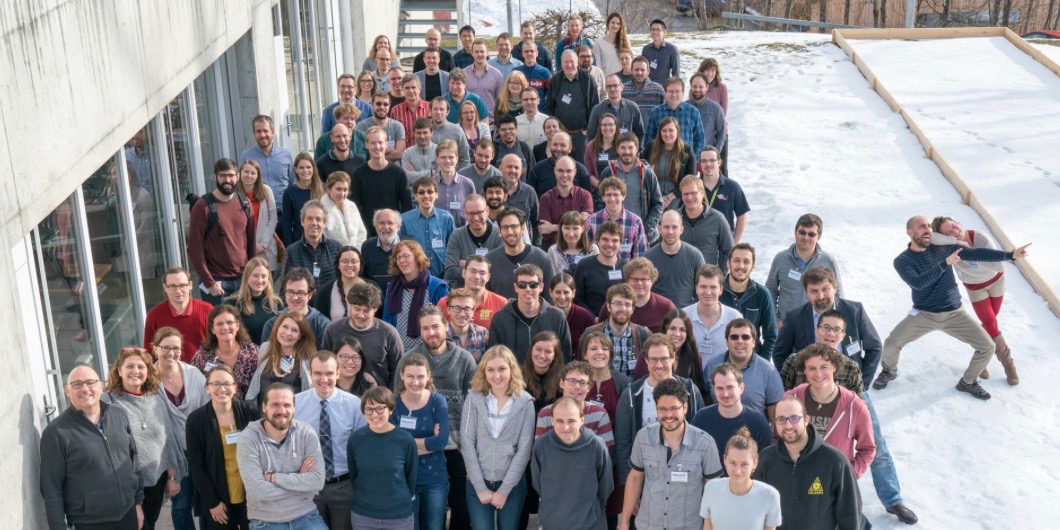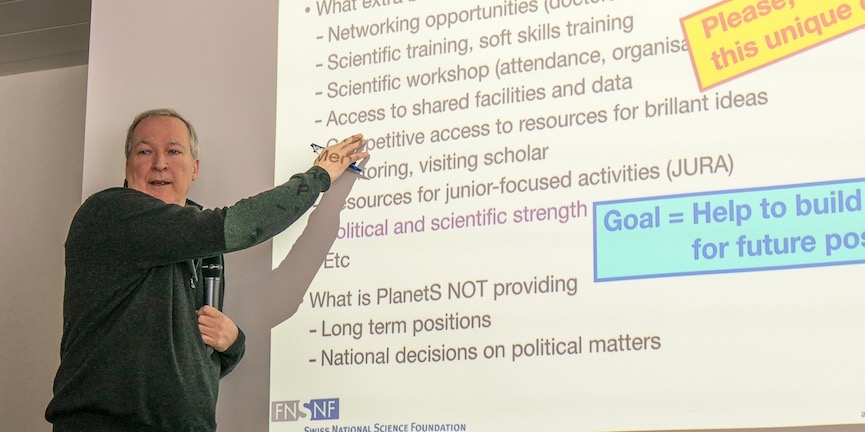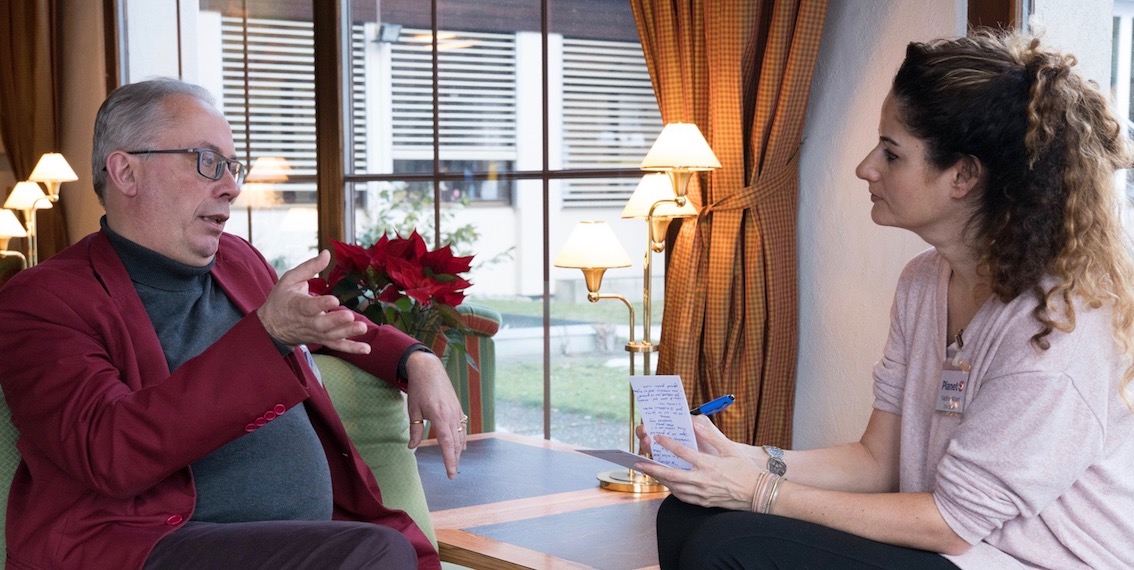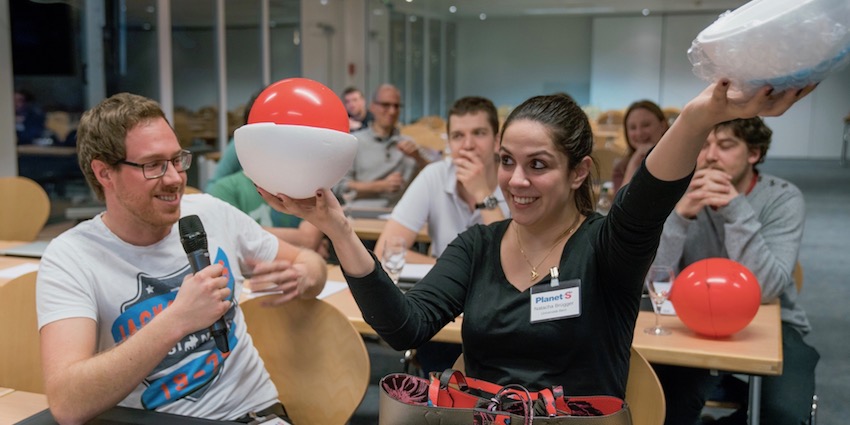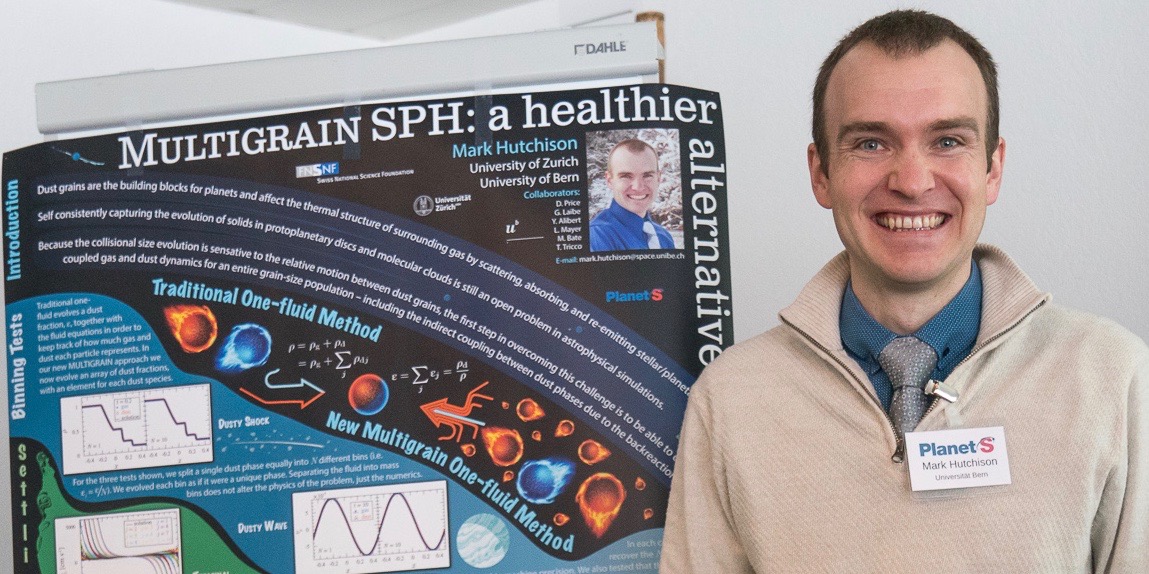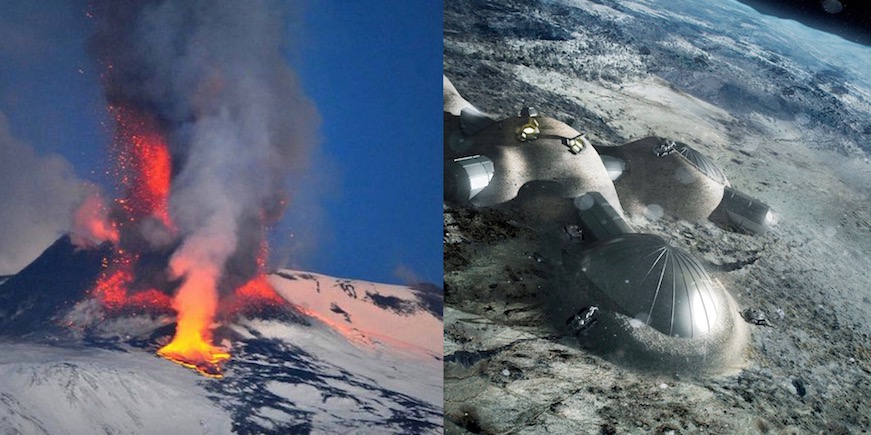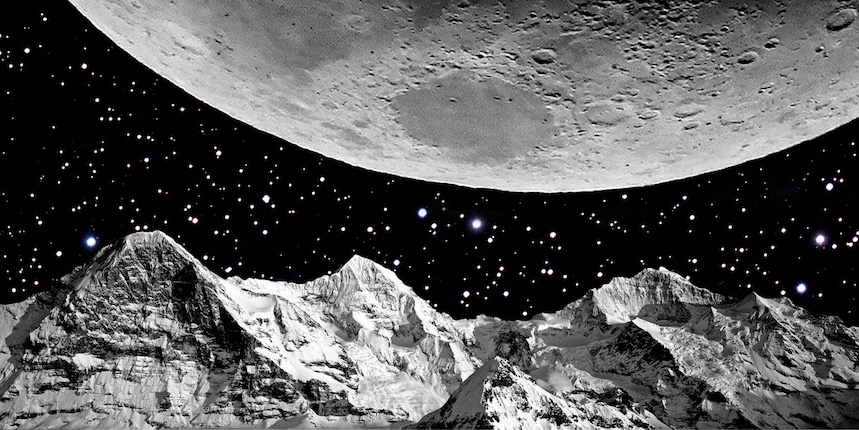News
Comet “Chury’s” late birth
Comets which consist of two parts, like Chury, can form after a catastrophic collision of larger bodies. Such collisions may have taken place in a later phase of our solar system, which suggests that Chury can be much younger than previously assumed. This is shown through computer simulations by an international research group with the […]
Continue ReadingEditorial
Dear PlanetS colleagues, Like for the first 3 editions, the 4th General Assembly of our NCCR in Grindelwald was a success with interesting presentations and workshops, lively discussions, and the renewed friendly ambiance between the participants. For the first time, however, the young members of PlanetS raised some worries about their future, especially in […]
Continue ReadingProvide a gift for everyone
From scientific results to planned projects, from gender issues to rocket construction, and from proposal writing to the life after academia: The program at the General Assembly of the NCCR PlanetS 2018 in Grindelwald was fully packed and provided the 125 participants with material for many discussions. “You can’t do science without money,” stated Dan […]
Continue ReadingA permanent position, the “Holy Grail” for young scientists
By Stéphane Udry Four years after the start of the NCCR, questions about the future are starting to become more pressing for the young astronomers in PlanetS. During the 4th General Assembly, held once again in the beautiful setting of Grindelwald, they raised serious concerns about the future of their career. Will fixed positions be […]
Continue Reading“Sometimes, it is not ourselves that we have to focus on”
Tomas Brage is a Professor of Physics at Lund University, Sweden. His research interests are in e.g. Laboratory Astrophysics as well as in Education and Didactics, Research in Physics, Gender and Equal Opportunities, Outreach, and Internationalization. At Lund University, he has led the Gender Certification project and the Core-Value project. In 2012, he has received […]
Continue ReadingDo-it-yourself in Grindelwald
When we visit schools or when schools visit us, we regularly use models or didactic tools to explain astronomical mechanisms. One of the best known is the one that explains the motion of a planet around a star and the motion of the star around the planet, a tool that allows illustrating the radial velocities […]
Continue ReadingHow to design a winning poster
With his colourful work Mark Hutchison, postdoc at the University of Bern, won the prize of the best poster presented at the PlanetS General Assembly 2018. Here, he tells us what it takes to make a good poster. By Mark Hutchison The first international conference I attended was a Division of Plasma Physics meeting in […]
Continue ReadingHabitable worlds at ESA
The 51st ESLAB Symposium took place at ESTEC (Nordwijk Netherlands) in early December (4 to 8). This year’s subject was about extreme habitable worlds. A particularly interesting topic for all planetary hunters and those who are looking for habitable worlds that could harbour life. Many themes were discussed during this week: climate on exoplanets, composition […]
Continue ReadingStarmus Festival to come to Bern in 2019
In summer 2019, the first moon landing will celebrate its 50th anniversary. The successful Apollo 11 mission is closely linked with the University of Bern. Due to this anniversary, the renowned Starmus Festival will take place in Bern from 24 to 29 June 2019. It is a festival which brings together science – primarily astronomy […]
Continue ReadingESPRESSO: first time with the 4 UTs of the VLT
The membres of the ESPRESSO team announced that the first light of ESPRESSO with the four VLT 8.2-meter Unit Telescopes (4UT mode) took place on Saturday February 3rd, 2018. The ESPRESSO team had been granted a half night of the 4UT mode by ESO, and it started with a cloudy sky, generously offered by the […]
Continue Reading
